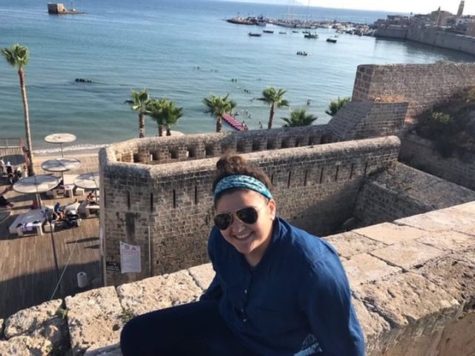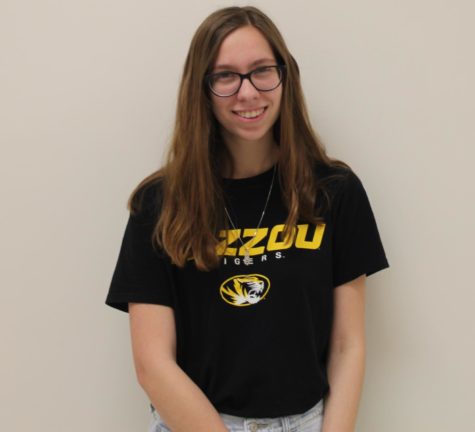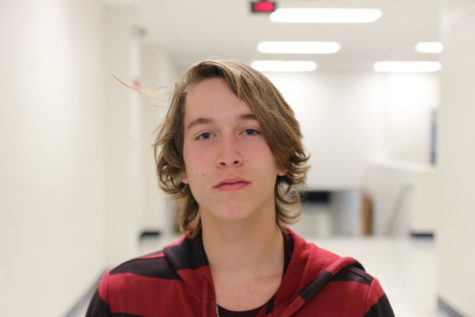Michael’s Manifesto: Israeli Prime Minister Reelection
Media by Tanner Rojewski
Variant of the reoccurring political series, Michael’s Manifesto, examining the Israeli-Palestinian conflict.
Throughout my life as a Jew, I’ve felt that all sermons and all speeches have lead back to the state of Israel.
At Sunday school, one of the greatest acts of Tikkun Olam, the Jewish concept for selflessly giving to others, was a student putting a $1 in the donation box to plant trees in Israel. Beyond memorizing the Hatikvah, the Israeli national anthem, one lesson I remember was the concept of Zionism. Our teachers told us that while the Arab world disparaged this ideology, we should instead have pride in it because it was the mere belief that the Jewish people should have a homeland.
That homeland is the Middle Eastern country Israel. Founded in 1948 in the aftermath of the Holocaust, many European Jews came to the region looking for both sanctuary and a connection to their biblical past. Violence erupted in the late 1940s as neighboring Muslim countries refused the establishment of a Jewish state, as had been proposed by the United Nations. Several wars and ceasefires later, the historical Muslim inhabitants of the area, called Palestinians, have had their protected land encroached upon by Israeli settlers.
In the homeland, it seems as if the Jewish state of Israel has prevailed: far-right Prime Minister Benjamin Netanyahu has won the Israeli election and will be entering his fifth term. For 13 years, Netanyahu has led Israel further away from the peace process with Palestinians, culminating with the recent electoral promise to annex settlements within Palestinian territory.
As someone who will be spending a semester abroad in Israel next year, I’m disappointed and fearful of the potential violent backlash from Palestinian dissenters. This turn of events has been disheartening to international onlookers and Israeli reformers; however, when looking at Israel under a microscope, we should feel anything but shocked at this turn of events.
The Labor Party of Israel has been in a steep decline for the past 20 years and has been replaced by conservative politicians who advocate for a state based on Jewish identity. Whether looking at Netanyahu’s Likud Party or the opposing Blue and White coalition, no major party in Israel has sought to heal relations and appeal to the Palestinians, only promising to protect the Jewish Israelis illegally living in Palestinian territory.
Sophia Safi, junior, is the daughter of Palestinian immigrants and similarly identifies as Palestinian after previously living there. She is neither happy or surprised at the news of Netanyahu’s reelection.
“It’s kind of frustrating that he’s elected again because nothing good will happen for Palestine,” Safi said. “He’s talked about how he’s for a Palestinian state but has since withdrawn his support and lied.”
Safi said that attending MHS has provided a great opportunity to meet other Palestinians but she also has faced mirror images of the Israeli-Palestinian conflict here as well.

Sophia Safi, junior, is the daughter of Palestinian immigrants. She has previously lived in Palestine and identifies as a Palestinian.
“I’ve gotten into some debates with Jewish people who didn’t know the full story and the other side – I’ve also got criticized for voicing my opinions,” Safi said.
Safi isn’t opposed to the idea of Israel existing instead of Palestine, but she contends that its issues of both the past and present drastically need to be addressed – something the country isn’t doing. Safi cites the annexation of the West Bank and the settling of Palestinian territory as her main concerns.
“Israel’s existence isn’t entirely wrong, but I do see it as that in a sense because of its unfair history,” Safi said. “I consider the state almost dirty because of how it was formed, how it came to be, and how it acts today. Under a different prime minister, maybe a Palestinian voice could be heard, but modern Israelis aren’t open to the idea of letting Palestine be relevant in any sense.”
Lauren Bayne, senior, is Jewish and currently teaches fourth graders at Sunday school about their shared Jewish identity and homeland in Israel. Bayne said that Israel being the Jewish homeland isn’t mutually exclusive with liberties for peoples of all religions there.

Lauren Bayne, senior, identifies as a Jew and hopes to have the opportunity to visit Israel in the future. She currently teaches Sunday school lessons at the Shaare Emeth Congregation for fourth graders.
“Israel can give equity to all citizens while still being the Jewish homeland because Israel isn’t just the Jewish homeland. It’s also a democracy, it’s a country, it’s a technological pioneer – Israel is so many things beyond Jewish,” Bayne said. “I think people who don’t fall into that demographic can coexist peacefully in Israel, while the country remains a place of safety for the Jewish people.”
Bayne is quick to acknowledge the issues faced by the Palestinians in Israel, but she doesn’t believe this hurts Israel’s right to exist.
“I do not think Israel has been fair to its Palestinian citizens,” Bayne said. “I think there have been several atrocities; however, that should not necessarily dissuade American Jews or American citizens from supporting Israel. We should take what Israel does with a grain of salt, the same way that we do with policies in America.”
Bayne said that Netanyahu’s reelection hurts her pride in the country and makes her worry for its future relations with the Palestinians.
“I’m personally not a fan of Netanyahu,” Bayne said. “Firstly, I think that he’s been in power for far too long considering that Israel is one of the only democracies in the Middle East. Also, I think that he’s become too tied to the hardliners in his party. His reelection is a step backwards for Israel in the peace process.”
The Israeli-Palestinian conflict is one that divides people who are thousands of miles away from its source. I was taught to respect the idea of the Jewish homeland while others have learned to fear it.
Many worry about the ramifications behind this election, myself included. We can see just at our own school there is an endless amount of perspectives in this dispute, but just maybe it’d be less of a dispute if we learned to listen a little bit more to one another.
Your donation will support the student journalists of Marquette High School. Your contribution will allow us to purchase equipment and cover our annual website hosting costs. You may become a PATRON by making a donation at one of these levels: White/$30, Green/$50, Blue/$100. Patron names will be published in the print newsmagazine, on the website and once per quarter on our social media accounts.

Michael Schmitz, senior, is a foreign correspondent for the Messenger. During his time in Israel, he will utilize his background in political analysis...

Tanner Rojewski, senior, is the Production Editor for the Messenger. He is involved in Robotics, National Honor Society, and is an Eagle Scout. He works...



